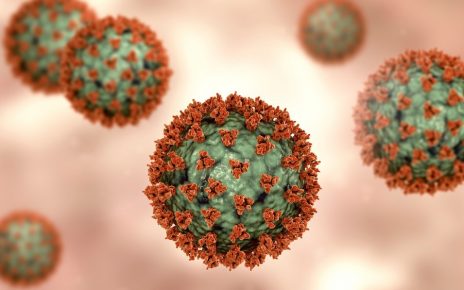
New findings from a landmark study indicate there may be a way to predict treatment response in breast cancer patients even before treatment begins. The study results led by Susan G. Komen Brinker Award winner Carlos Caldas, M.D., FMedSCi, will be presented for the first time at the 2021 San Antonio Breast Cancer Symposium (SABCS) held on December 7-10.
During the Brinker Award lecture, where Dr. Caldas will be presenting the new findings, he also will be presented with the 2021 Susan G. Komen Brinker Award for Scientific Distinction in Basic Science, which is Komen’s highest scientific honor. Dr. Caldas is being honored because of his significant contributions in the field of breast cancer genomics, as well as his leadership and work on breast cancer functional genomics.
The pioneering research study is slated to be published in the Dec. 7 issue of Nature.
Led by Dr. Caldas, a research team from the Cancer Research UK Cambridge Institute at the University of Cambridge and Addenbrooke’s Hospital analyzed breast cancer biopsies acquired at diagnosis, prior to the start of therapy, with the idea that by profiling different components of the abnormal tumor tissue, a test could be developed that could predict response to treatment.
What they discovered was remarkable—The pre-treatment cancer landscape was highly predictive of response to therapy, and the performance of the predictor they developed significantly improved as clinical, tissue architecture and molecular data were added.
“Dr. Caldas’ recent study being presented at SABCS is an example of how his work has advanced our understanding of the DNA and RNA compositions of human breast cancers, the genomic heterogeneity of breast cancers, and the relationships of a tumor’s make up to individual outcomes and responses to breast cancer treatment,” said Komen’s Chief Scientific Advisor, Jennifer Pietenpol, Ph.D., Executive Vice President for Research at Vanderbilt University Medical Center, Director of the Vanderbilt-Ingram Cancer Center, and the B.F. Byrd Jr. Professor of Molecular Oncology.
“This work further defines molecular subtypes (or groups) of breast cancer and identifies the genomic changes that drive tumor growth,” said Dr. Pietenpol. “The discoveries of Dr. Caldas and his laboratory have redefined breast cancer taxonomy, identified novel subtypes and provided critical insights to the biology of the disease.”
About the Landmark Study
“It has been known for some time that cancers are complex tissues containing not only malignant cells, but also normal tissue cells (both from the immune system, such as lymphocytes, macrophages and other white blood cells, and other cell types, including fibroblasts and blood vessels),” said Dr. Caldas. “These form an abnormal tissue ecosystem, which we call a tumor.”
“We extensively analyzed breast cancer biopsies obtained at diagnosis, prior to starting any therapy, with the idea that by profiling different components of the abnormal tumor tissue, a robust test that could predict response to treatment would be generated,” said Dr. Caldas.
By applying machine learning algorithms to the digitized tissue images collected from the biopsies, researchers were able to characterize the architecture and cellular composition of the cancer tissue. To gain a detailed understanding of the molecular composition of the tumor, the researchers profiled the DNA and RNA of the cancer and surrounding normal cells using next-generation sequencing. This enabled them to catalog all the genetic mutations and chromosomal aberrations in the cancer cells and measure the expression of all the genes in both the tumor cells and the surrounding immune and other normal cells.
The data generated from 168 tumor biopsies were multidimensional and complex, so the researchers used a stepwise process to generate a test predictive of response to therapy. In the first step, they determined which parameters (extracted from clinical, pathology, digital tissue images and DNA/RNA data) were associated with response to eighteen weeks of chemotherapy. In the second step, they combined these parameters using a machine learning framework and built a model that predicted how well a tumor would respond to therapy.
The researchers rigorously validated their predictive test by applying it to an additional 75 independently profiled tumors, including tumors from a clinical trial done in collaboration with the Edinburgh Cancer Centre and the University of Warwick. Key cancer parameters used by the predictive test included the number and type of mutations in the cancer cells, how rapidly the cancer cells grew, and the degree to which the immune system was engaged in attacking the tumor prior to starting therapy.
In the future, the test could be used to determine which women can be treated with therapies currently available in the NHS, when the test says they are likely to respond, or alternatively to be treated using novel therapies in clinical trials, if the test predicts the tumor is likely to be resistant. Perhaps more importantly, this approach has demonstrated a new way of thinking about forecasting therapy response which could be adapted for other cancer types.
Source: Read Full Article



